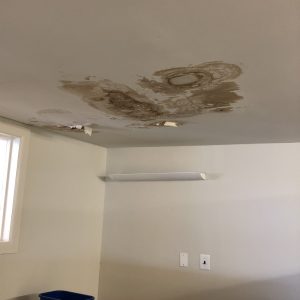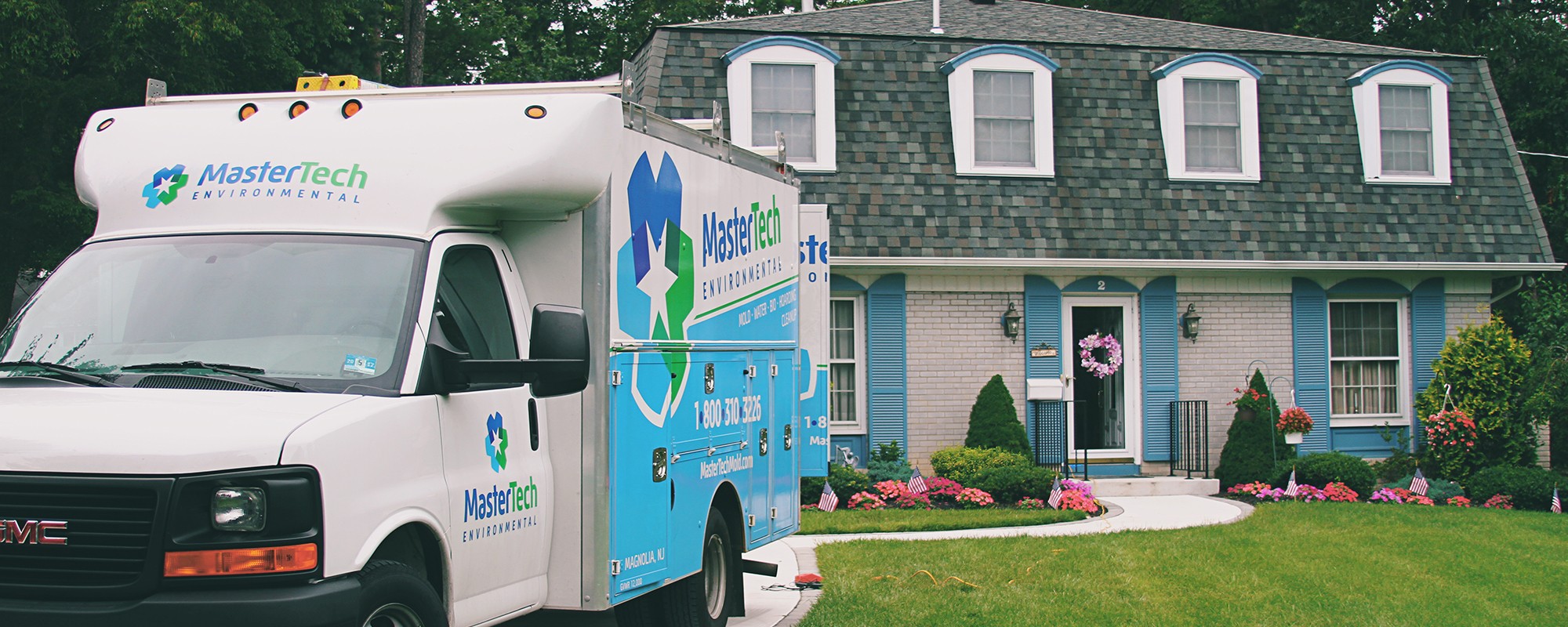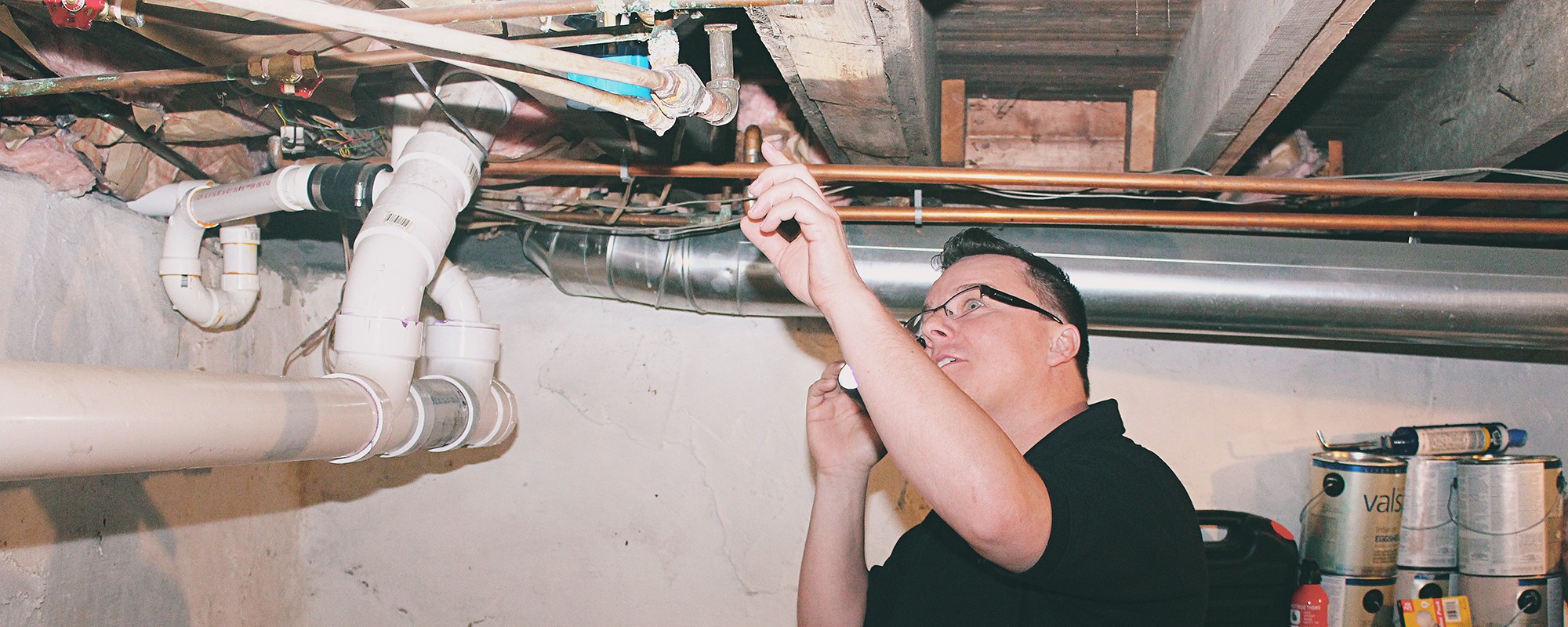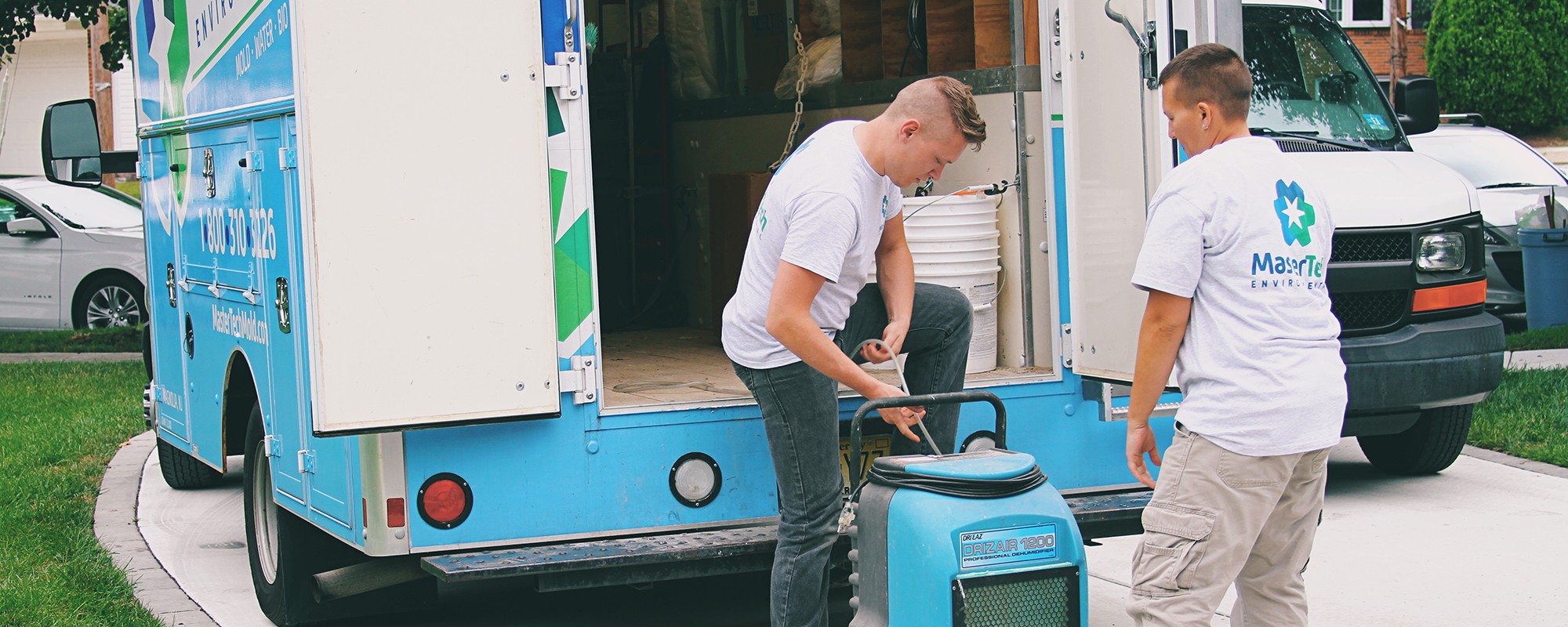If water is loose in your New Jersey property from a hidden leak, no matter the original water source, it can rapidly spread and affect porous building materials throughout the home or business.
Hidden Mold Growth And Water Damage Caused by Undetected Water Leaks
Unaddressed leaks can lead to widespread water damage, cause serious mold growth, and leave property owners with a costly repair. When it comes to leaks, early detection is key. Water from the leak needs to be extracted and dried out immediately, damp and non-salvageable materials and contents need to be removed, and the leak needs to be effectively repaired. Lack of a thorough dry-out or failure to resolve the leak in a timely manner can lead to serious property damage and widespread mold contamination throughout the New Jersey property.
If you uncover excessive water buildup from a water leak, you need to contact a professional water damage cleanup company in New Jersey who will be able to complete an effective cleanup and thorough dry-out in order to prevent additional damage and possible mold growth.
Water can easily flow to and soak into any of your porous building materials once it is loose in your property. It can be easy to overlook a leak, especially since most plumbing in New Jersey properties are covered by building materials like drywall. Whether it is a plumbing leak or roof leak, by the time you discover it, it may have already caused a great deal of hidden mold growth and water damage. All too often, in the case of hidden leaks, it can take a while before the leak soaks through your building materials can become visually obvious. Because of this, by the time you see dampness from a leak, the leak may have caused more hidden mold growth and water damage than meets the eye. It may be necessary to contact professional to properly assess the space to determine the full extent of the problem, uncover additionally hidden mold growth and water damage, and effectively address the issue.
If are concerned about mold growth caused by a prolonged, unaddressed leak, contact a professional mold inspector in New Jersey to help.
Signs of a Water Leak in Your New Jersey Property
Leaks easily go unnoticed for an extended period of time. Pay attention to the signs that could be pointing you to a serious underlying water problem that is unknowingly leaving you with serious water damage and hidden mold growth.
- Signs of Mold– In the presence of moisture, it only take 24-48 hours for mold to begin to develop. Signs of mold can mean an underlying moisture problem like an unaddressed leak. Some things to look for:
- Musty odors– Mold spores can release gasses that may have a musty odor. If you notice a musty odor in your home, you might have a mold problem, even if you do not see it.
- Visual signs of mold growth– When moisture comes into contact with dormant spores, active mold growth begins. Visible mold might be to result of a hidden water issue.
- Suspicious Staining– Unexplained staining and/or discoloration can be the result of water from an unaddressed water leak. Water that seeps into wall and/or ceiling voids often manifests as a stain or blotch as it slowly saturates the adjacent wallboard or ceiling. Oftentimes, stains will appear to be yellowish in color. If there is mold growth developing, the stain might appear to be darker.
- Peeling Wall or Ceiling Finishes– In situations where there is excess moisture buildup within the wall and/or ceiling voids, the water will eventually saturate the adjacent drywall and wall finishing. The saturation will compromise adhesion, causing the paint or wallpaper on the opposing side to raise, ripple, bubble and/or peel.
 Swelling– If your porous building materials come into constant contact with moisture, you might notice that your materials will start to swell. As water absorbs into wood, drywall, flooring, etc., the materials will begin to swell and become visually obvious over time.
Swelling– If your porous building materials come into constant contact with moisture, you might notice that your materials will start to swell. As water absorbs into wood, drywall, flooring, etc., the materials will begin to swell and become visually obvious over time.
- Swollen door casing or door alignment– As water absorbs into your door jam, the jam will swell and affect the alignment with your door. It will be difficult to actually see the swelling, but you will experience it. The door will slowly become more and more difficult to open and close.
- Baseboards/trim separating from the wall– As building materials swell up, materials that were once flush against each other will begin to grow and push against each other and force material separation.
- Sagging walls and ceilings– Excessive water collected within your building materials can impose a great deal of weight and stress on the structure of your New Jersey property. With time, the excess weight and stress will reflect in your walls and ceilings. Eventually, saturated drywall and ceiling materials begin to deform and buckle. Water-soaked walls and ceilings compromise the structural integrity of the NJ home and present a safety hazard if they collapse.
- Floor effects– Water most commonly seeks out and travels to the lowest level and seeps under floor coverings (i.e.: carpet, tile, vinyl, etc.) and soak into the sub-floor. If you are experiencing dampness or signs of dampness on your floors, you may need a professional dry-out. In some cases, removal of some floor coverings, particularly carpet and padding, may be necessary to effectively dry the structure. Untreated moisture collected within your flooring can lead to widespread mold growth that will require the help of a professional mold remediation company in South Jersey.
If you just discovered a hidden water leak that has had the opportunity to cause serious hidden mold growth and water damage in your New Jersey home or business, Mastertech Environmental might be able to help. Schedule an appointment with a trained and certified inspector. A thorough assessment will help to determine the full extent of the damage and how best to effectively address the cleanup.





